AMD Radeon HD 7870 GHz Edition & Radeon HD 7850 Review: Rounding Out Southern Islands
by Ryan Smith on March 5, 2012 12:01 AM ESTOverclocking: Gaming & Compute Performance
As always we’ll keep the commentary thin here, but overall the overclocked performance of the 7800s looks very good, which is what you’d expect with a 15%+ core overclock and a 12% memory overclock. With the exception of Skyrim performance at 19x12, the overclocking performance increase for both cards is roughly split between the core and memory overclocks, meaning we’re seeing a 13.5% average performance increase for the 7870 and a 17% average performance increase for the 7850. As the 7800 series has the same number of ROPS as the 7900 series, it looks like we’re running headlong into the memory bandwidth bottleneck that makes the 384-bit memory bus on the 7900 series sing.
All things considered among our tests we have everything from even the 7850OC beating the GTX 580, to the GTX 580 still holding onto its lead versus the 7870OC. But even if you can’t beat a GTX 580 with a 7870OC you can get very close on a card that costs a good bit less.
Meanwhile for compute performance the gains are similar: 12.5% on the 7870, and 19.5% on the 7850.
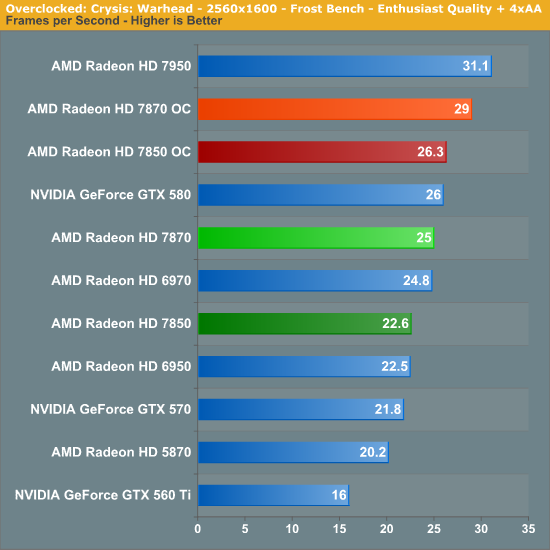
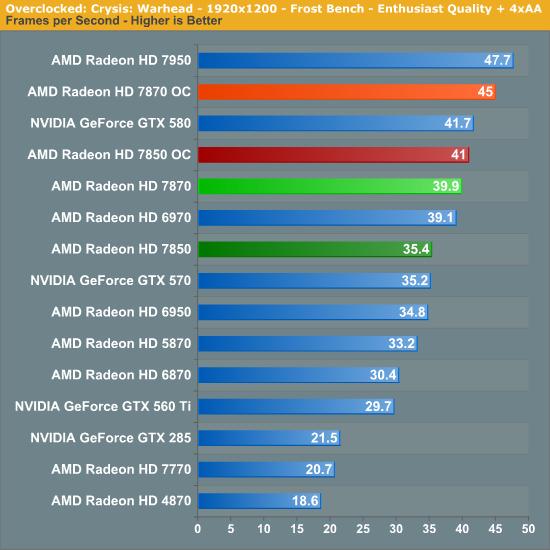
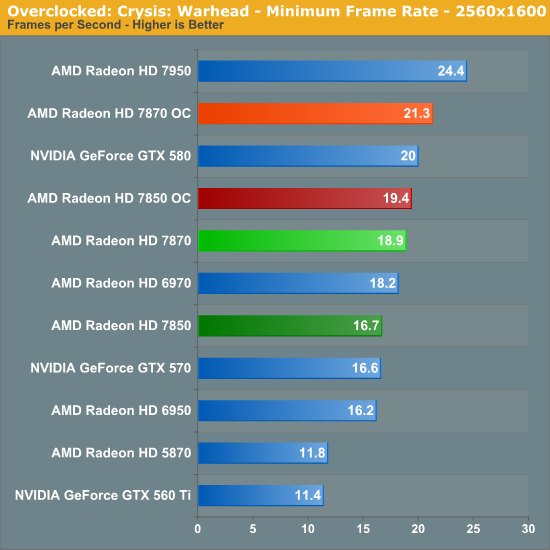
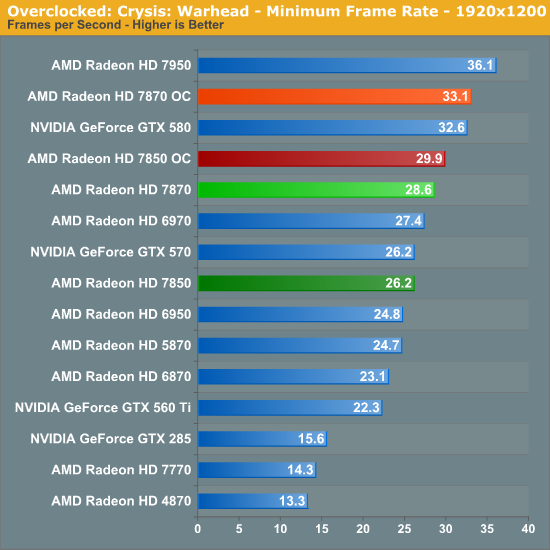
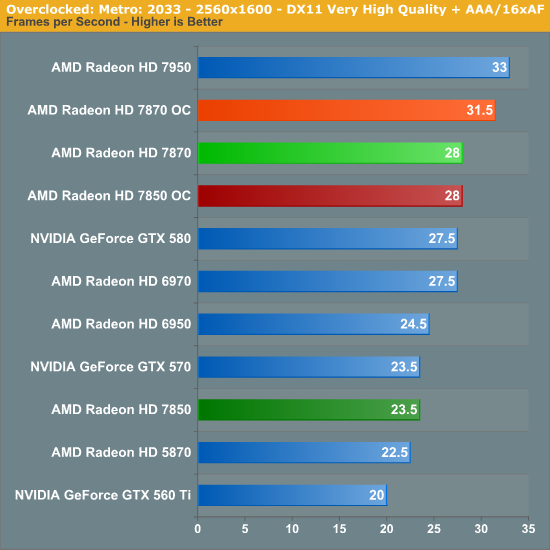
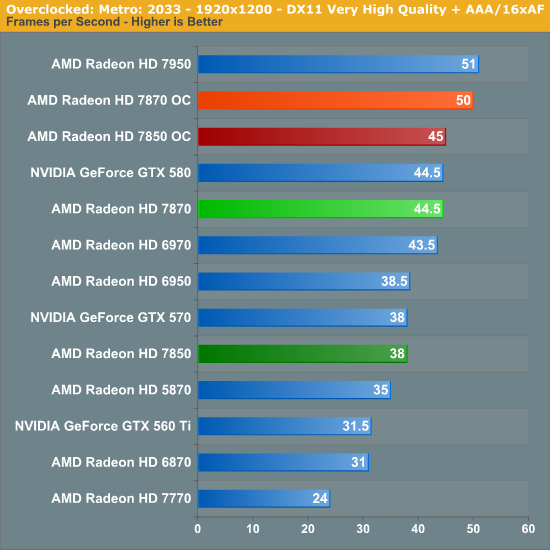
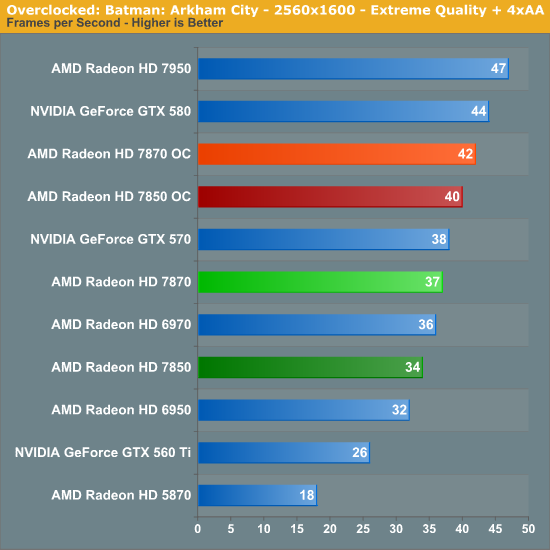
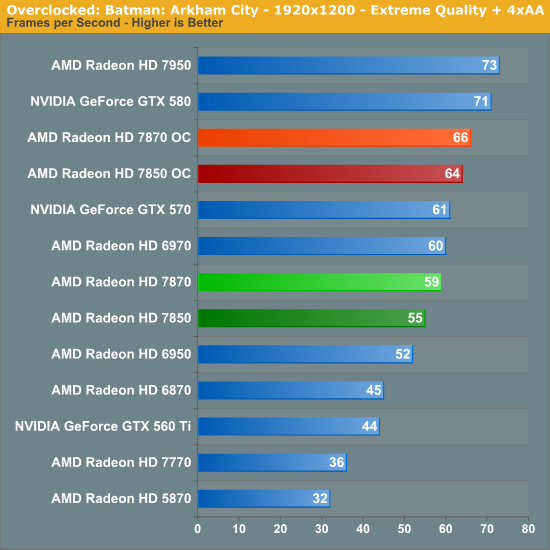
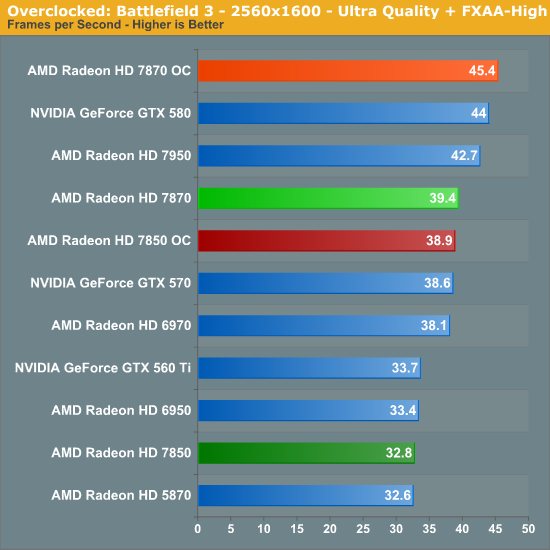
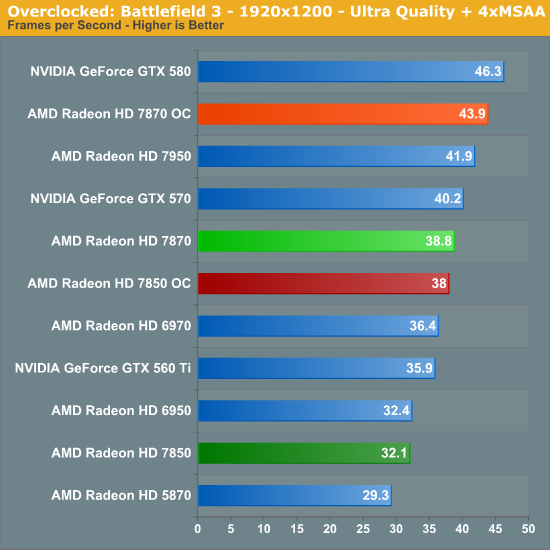
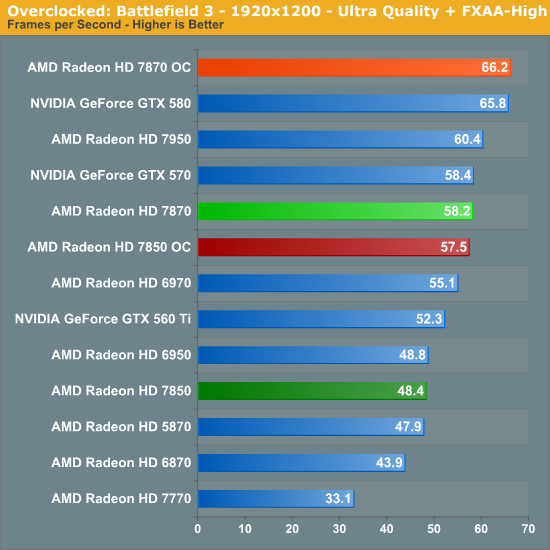
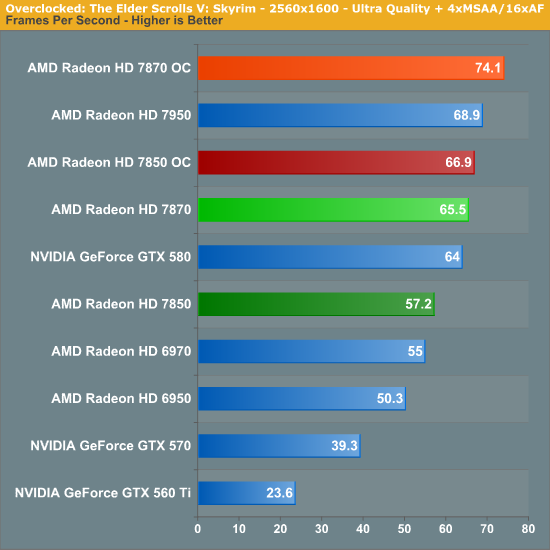
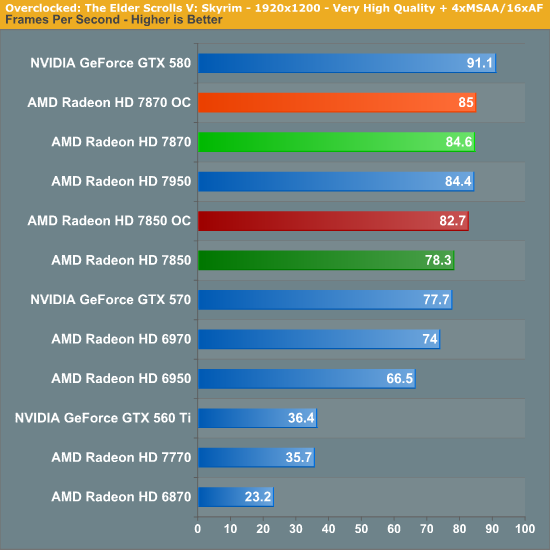
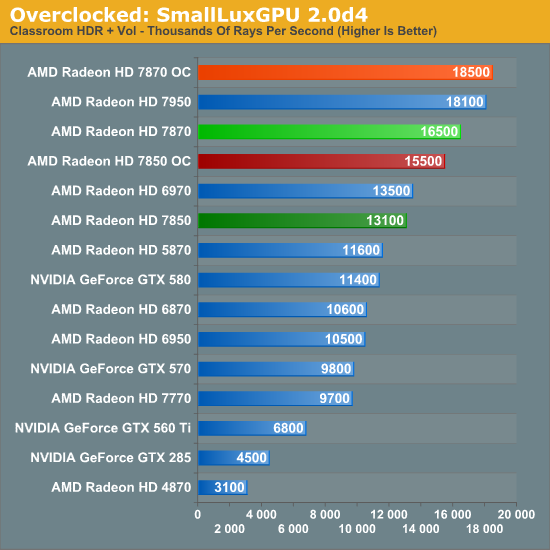
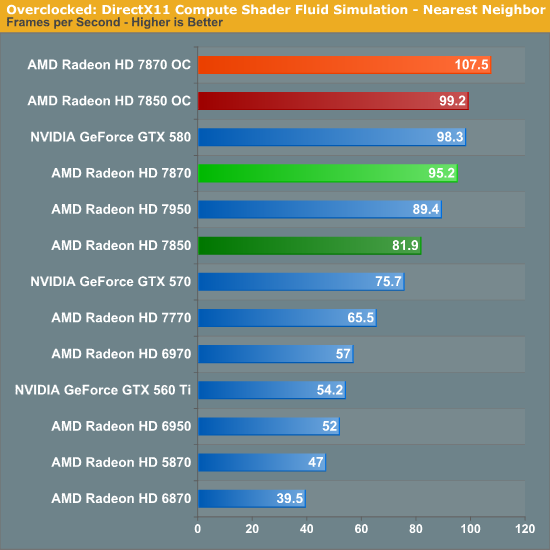










173 Comments
View All Comments
DeViLzzz - Monday, March 5, 2012 - link
It is not the dumbest statement ever. Have you looked at multiple sites benchmarks ? Clearly a 2 GB 6950 Power Color flashed to a 6970 or a 6970 is worth keeping. Hardly an improvement over those situations for the price you would be paying for a 7870 and 7850.ExarKun333 - Monday, March 5, 2012 - link
Then you don't follow the graphic card industry very well at all.MadAd - Monday, March 5, 2012 - link
did i just read a different review? looking at this i did - Im on the 6950 and no theres not enough performance difference.also, comparing apples to oranges and saying theres a gain isnt going to work - if someones going to OC a 7*** then im sure they have also OC their 6***, so comparing a straight 6*** to the 7*** OC results and calling it a difference is smoke and mirrors.
cactusdog - Monday, March 5, 2012 - link
You guys dont get it. Why are you comparing the 7870 to a 6950? Should be the 6870 but even then The 7870 smashes the 6950 when overclocked. the 7870 performs like a stock 7970 when overclocked. You cant compare overclocking on the 6 series to the 7 series. The 7 series is the sandy bridge of GPUs.Why compare last gens high end to this gens mid range? If you have a 6950/6970 you should be looking at a 7950/7970. A 7950/7970 will give you 70% increase in performance when overclocked. AMD left heaps of overclocking headroom for easy overclocking.
Sure, the price is a little high now, but just wait a few weeks until Nvidia cards arrive and prices will come down. New tech is always a little expensive when it first comes out but no one is forcing you to buy now. Just wait a couple of weeks
Kiste - Tuesday, March 6, 2012 - link
"Why compare last gens high end to this gens mid range?"Because were introduced at the same price point. Video card names/numbers are completely arbitrary, you have to compare cards at a given price point.
xrror - Monday, March 5, 2012 - link
So I have one the the early 6950 2GB cards unlocked to 1536 shaders, and a 935/1275 overclock.Running at 1920x1200 in skyrim with the high resolution texture packs from Bethesda starts to lag.
Yes I'm being petty, but as a PC gaming smoe, I'm looking for a card that's under $300 that will dominate what I have.
I can't find a confident vote for a strong successor in the sub $300 range to replace my current card.
This makes me sad. Also with all the growing pains 69xx series had - and AMD's dumping of VLIW4 makes me pretty sure 69xx is a dead end for any future driver improvements.
Maybe I can sell my 6950 for $100 to subsidize a 79xx or a Kepler?
Zoomer - Wednesday, March 7, 2012 - link
I'll take it.mpschan - Monday, March 5, 2012 - link
I'd tend to agree with your assessment. Only those looking for bleeding edge performance should consider the upgrade to the 7900 series.The price/performance curve is a little disappointing, but not unexpected. This is what happens when you:
a) Move to a new process
b) Implement a new architecture
c) (Most importantly) Have no competition
They need to make their money back on the first two, and having no competition allows them to do that and then some.
But look at the thermals and power draw. Decreased power usage with a small gain in performance? Where have I seen that before ... oh I know, Intel!
Welcome to tick-tock folks. They took their process shrink and used it to allow them to draw less power, not tear up the performance charts.
This means the next generation on 28nm has room to expand. 1280 SP for the 7870 can be 1600 for the 8870. A 212mm2 die can be 300mm2. 190w can be 220w.
Ultimately the performance of these cards will come down to power drawn. The huge jumps in performance that we used to see existed because of drastically improving fabrication technologies combined with better ways of rendering screens. I think those days will be few and far between now.
arjuna1 - Monday, March 5, 2012 - link
You have a point, this generation is not worth spending the $$$ to "sidegrade". I don't kepler doing anything to change that other than forcing AMD to have decent prices.cactusdog - Monday, March 5, 2012 - link
How is a 7950/7970 a "sidegrade"?? To a 6950/6970? Its a massive performance increase. If you have a highend 6 series GPU you should be looking at highend 7 series. Not midrange.